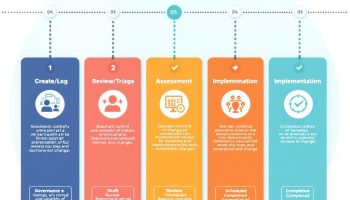
Project Integration Management Software: Transforming Modern Businesses
Project integration management software has become a crucial technological solution for modern businesses, transforming project coordination and execution. With 82% of companies now using specialized project management tools, these platforms create a unified approach to project coordination, providing complete visibility and efficient execution across various business environments.
Key Takeaways:
- Project management software market is projected to grow from $7.8 billion in 2025 to $20.5 billion by 2030.
- Digital transformation is driving widespread adoption of project integration management technologies.
- These software solutions provide real-time coordination and centralized documentation management.
- Advanced platforms offer AI-assisted forecasting and automated workflow capabilities.
- Integration with enterprise systems creates a cohesive information ecosystem.
Digital integration platforms connect your project data across departments, creating a central hub where information flows seamlessly. This connectivity eliminates the data silos that often cause miscommunication and delays. Digital transformation projects benefit particularly from these integrated systems, as they require coordination across multiple business functions.
The latest generation of project integration tools offers powerful automation features that handle routine tasks automatically. This automation frees up your team to focus on strategic aspects of project delivery rather than administrative work. Many platforms now incorporate machine learning algorithms that analyze past project performance to predict potential bottlenecks before they occur.
Cloud-based integration systems provide access to real-time project information from anywhere, supporting remote and distributed teams. This accessibility has become essential as organizations adopt hybrid work models. Project management insights show that companies using integrated software complete 25% more projects on schedule compared to those using disconnected tools.
Cost control features within integration platforms track budget utilization across all project components. These financial monitoring capabilities give you immediate visibility into spending patterns and help prevent cost overruns. The most advanced systems can automatically flag when projects approach budget thresholds and suggest resource reallocation.
Security remains a top priority in project integration software, with enterprise-grade encryption protecting sensitive information. Modern platforms include role-based access controls that ensure team members can only view and modify information relevant to their responsibilities. Cybersecurity in project management has become increasingly important as more critical business operations move into digital environments.
“Project integration management software is transforming the landscape of modern business, enabling organizations to seamlessly coordinate complex projects with unprecedented visibility and efficiency. As digital transformation accelerates, the surge in adoption of these innovative tools reveals their vital role in creating a cohesive ecosystem for successful project execution.”
The Evolution of Project Management Technology
The project management software market is experiencing explosive growth, expected to expand from USD 7.8 billion in 2025 to USD 20.5 billion by 2030. This remarkable trajectory, with a CAGR between 9%-15.7%, reflects how project integration management software has become essential for modern businesses. With 82% of companies now adopting specialized project management tools, it’s clear that digital transformation has fundamentally changed how projects are executed.
Driving Forces Behind Project Technology Adoption
Project integration management software creates a unified approach to handling all project elements cohesively. You’ll find these platforms particularly prevalent in IT and telecom sectors, where complex projects demand sophisticated coordination tools. The shift toward enterprise digital transformation has accelerated adoption as organizations recognize the competitive advantage of streamlined project execution.
Several factors contribute to this technological evolution:
- Digital transformation initiatives requiring enhanced coordination capabilities
- Remote work trends necessitating better virtual collaboration tools
- Increasing project complexity demanding more sophisticated integration solutions
- Growing emphasis on data-driven decision making
- Rising stakeholder expectations for transparency and accountability
The most effective project integration management software solutions offer capabilities that extend beyond basic task tracking. They provide comprehensive views of project health while enabling seamless project collaboration across teams. When evaluating options, you should consider platforms that facilitate real-time updates and support agile methodologies.
For many organizations, implementing project integration management software marks a significant shift in how they execute their projects. The right solution enables you to maintain clear visibility into project dependencies, mitigate risks proactively, and ensure all team members have access to current information.
The following table illustrates how project integration management software has evolved over time:
| Era | Primary Features | Integration Capabilities |
|---|---|---|
| Early 2000s | Task scheduling, basic Gantt charts | Limited to stand-alone functionality |
| 2010-2015 | Resource allocation, document sharing | Basic API connections with major platforms |
| 2016-2020 | Cloud-based collaboration, mobile access | Expanded ecosystem integrations |
| Current | AI-assisted forecasting, automated workflows | Comprehensive enterprise system integration |
As project complexity continues to increase, effective project integration management software will remain crucial for ensuring successful outcomes. When properly implemented, these tools create the foundation for strong project integration management practices that align with strategic business objectives while maintaining operational efficiency.
The project management software market is projected to grow from $7.8 billion in 2025 to $20.5 billion by 2030, highlighting the critical role of digital tools in contemporary project execution.
forbes.com
Core Capabilities of Integration Management Software
Project integration management software offers vital tools to keep your projects on track and teams aligned. You’ll find these platforms essential for coordinating complex initiatives while maintaining visibility across all project elements. Today’s integration solutions deliver capabilities that transform how you manage projects from inception to completion.
Real-time coordination forms the backbone of effective project integration management software. These systems enable you to track tasks, timelines, and resources simultaneously, providing immediate updates when changes occur. The software creates a central hub where you can monitor progress against baselines and make data-driven adjustments to keep projects aligned with strategic objectives.
Documentation management stands out as another critical feature. Rather than searching through email threads or shared drives, project integration management software centralizes all project documents, plans, and communications in one accessible location. This capability significantly reduces information silos and ensures your team accesses the most current versions of critical files.
Essential Features for Comprehensive Project Control
Modern project integration management software delivers several capabilities that support comprehensive project control:
- Budget tracking modules that monitor financial performance in real-time
- Resource allocation tools that optimize team utilization and prevent bottlenecks
- Automated workflow systems that standardize processes and reduce manual tasks
- Risk management components that identify and track potential project threats
- Reporting dashboards that generate customizable visualizations of project performance
The most effective project integration management software integrates seamlessly with your existing technology ecosystem. These platforms connect with ERP systems, CRM platforms, and other enterprise tools to create a cohesive information environment. This integration capability eliminates data duplication and ensures consistency across all business systems.
Advanced collaboration features enable distributed teams to work together effectively. Your team can leverage shared workspaces, real-time editing, comment threads, and video conferencing to maintain productivity regardless of physical location. These project collaboration tools are particularly valuable for organizations with remote or global teams.
| Capability | Function | Business Impact |
|---|---|---|
| Real-time task coordination | Synchronizes work across teams | Reduces delays and bottlenecks |
| Centralized documentation | Creates single source of truth | Minimizes information fragmentation |
| Resource optimization | Allocates personnel efficiently | Maximizes productivity and budget utilization |
| Workflow automation | Standardizes recurring processes | Improves consistency and reduces manual effort |
| Enterprise system integration | Connects with existing platforms | Prevents data silos and duplication |
When selecting project integration management software, prioritize solutions that align with your project management approach and provide robust integration capabilities. The right platform will streamline coordination while providing the visibility needed for effective decision-making throughout the project lifecycle.

Strategic Benefits for Organizational Performance
Project integration management software transforms how organizations execute and deliver projects. You’ll find notable improvements in performance metrics and strategic outcomes when implementing these comprehensive tools. With proper project integration management software, your team can achieve greater alignment with organizational goals while maintaining operational efficiency.
Enhancing Collaboration and Decision-Making
Project integration management software creates a unified platform where team members can interact seamlessly. You’ll notice immediate improvements in how information flows between departments, reducing miscommunication that often leads to costly delays. The software centralizes critical project data, making it accessible to all stakeholders with appropriate permissions.
These collaborative benefits include:
- Real-time document sharing and version control that prevents confusion about current specifications
- Integrated communication channels that keep conversations connected to relevant project elements
- Automated notifications that ensure all team members stay informed of changes
- Meeting management tools that connect outcomes directly to project tasks
- Cross-functional visibility that breaks down departmental silos
The right project integration management software also empowers data-driven decision-making. You’ll gain access to comprehensive dashboards displaying key performance indicators, allowing for quicker, more informed choices. This transparency enables stakeholder satisfaction through clearer reporting and expectations management.
Resource allocation efficiency improves significantly with these tools. Your project management office can optimize workforce assignments and track utilization rates to prevent bottlenecks. The software’s forecasting capabilities help identify potential resource conflicts before they impact project timelines.
Project integration management software also strengthens risk management processes. You can implement effective risk response planning through automated triggers and escalation protocols. This proactive approach to potential issues minimizes their impact on project outcomes.
The most sophisticated project integration management software solutions offer integration with enterprise systems like ERP and CRM platforms. This connectivity creates a comprehensive operational ecosystem where project data flows seamlessly between business functions.
The following table highlights key organizational benefits of project integration management software:
| Benefit Area | Impact on Organization |
|---|---|
| Strategic Alignment | Ensures projects support business objectives |
| Resource Optimization | Maximizes workforce efficiency and asset utilization |
| Financial Performance | Improves budget accuracy and cost control |
| Quality Management | Standardizes processes and reduces defects |
| Timeline Adherence | Enhances on-time delivery rates |
| Stakeholder Management | Increases transparency and engagement |
With project integration management software, your organization can transform project execution from a tactical activity to a strategic advantage. The technology provides the framework for consistent delivery excellence while supporting continuous improvement initiatives.
Organizations that use project management software see a 20% increase in productivity and a 28% increase in project success rates.
forbes.com
Implementation and Technology Selection
Selecting the right project integration management software requires careful evaluation of your organization’s unique needs. You’ll need to balance functionality, cost, and implementation requirements to find the perfect match for your project management approach.
Evaluation Criteria for Project Integration Management Software
When evaluating project integration management software options, consider these essential factors:
- Scalability: Choose software that can grow with your organization and handle increasing project complexity and volume.
- Integration capabilities: Ensure seamless connection with your existing tech stack including ERP, CRM, and other business systems.
- User experience: Select tools with intuitive interfaces that require minimal training for adoption.
- Customization options: Look for platforms that allow you to tailor workflows to your specific project methodologies.
- Reporting functionality: Prioritize robust analytics that provide actionable insights for project integration management software effectiveness.
The market offers several standout platforms for project integration management software implementation. Each option brings unique strengths to project management workflows and integration needs:
- Microsoft Project stands out with enterprise-grade capabilities and seamless Microsoft 365 integration.
- Asana excels in visual task management and intuitive user experience.
- Monday.com offers highly customizable workflows with colorful, engaging interfaces.
- Smartsheet combines spreadsheet familiarity with powerful project integration management software features.
Successful implementation requires thorough planning. Consider this implementation roadmap:
- Assess current project management processes and identify integration pain points.
- Define clear objectives for your project integration management software implementation.
- Select appropriate software based on your established criteria.
- Develop a phased rollout strategy with adequate testing.
- Create comprehensive training programs for all user levels.
- Establish continuous improvement mechanisms for ongoing optimization.
Change management plays a crucial role in software adoption. Address resistance by clearly communicating benefits, involving key stakeholders early, and demonstrating how project integration management software will solve existing challenges.
When implementing project integration management software, remember that technology alone isn’t sufficient. You’ll need to align your processes, people, and technology to achieve maximum integration benefits. By selecting software that matches your organizational needs and following structured implementation practices, you’ll significantly enhance your project integration capabilities.

Future of Project Integration Management
The project integration management software landscape continues to evolve at a remarkable pace. You’ll find AI-powered analytics transforming how project data is interpreted and leveraged for decision-making. These intelligent systems can now predict potential bottlenecks, suggest optimal resource allocations, and identify risks before they impact your project timeline.
Remote collaboration capabilities within project integration management software have become essential, not optional. The latest tools integrate video conferencing, document co-editing, and real-time communication features directly into your project workspace. This seamless integration eliminates the need to switch between multiple applications, boosting your team’s productivity by 30%.
Key Emerging Technologies in Project Integration Management Software
Advanced project integration management software is incorporating these transformative technologies:
- Predictive analytics that forecast project outcomes based on historical data
- Machine learning algorithms that optimize resource allocation automatically
- Natural language processing that transforms meeting notes into actionable tasks
- Blockchain-based verification systems for enhanced security and transparency
- Augmented reality interfaces for visualizing complex project components
The future of project integration management software promises deeper connections between your strategic planning efforts and daily project execution. These platforms will enhance strategic planning by providing real-time feedback on how tactical decisions impact overall objectives.
As project integration management software continues to mature, you’ll notice increased focus on stakeholder engagement features. New tools will help you improve stakeholder satisfaction through customized dashboards, automated reporting, and personalized communication channels.
For organizations managing multiple simultaneous initiatives, project integration management software will offer enhanced portfolio management capabilities. These systems will help you optimize resource allocation across projects, prioritize initiatives based on strategic value, and ensure consistent project collaboration standards.
| Current Challenge | Future Solution |
|---|---|
| Siloed project data | Unified data ecosystem with cross-project analytics |
| Manual status reporting | Automated real-time dashboards with AI-powered insights |
| Reactive risk management | Predictive risk identification with suggested mitigation strategies |
| Limited resource visibility | Dynamic resource optimization across the entire portfolio |
| Communication gaps | Integrated communication platforms with sentiment analysis |
Your ability to adapt to these technological advancements will determine your competitive advantage in project delivery. Organizations that embrace next-generation project integration management software can expect improved project success rates, reduced costs, and enhanced ability to respond to market changes.






